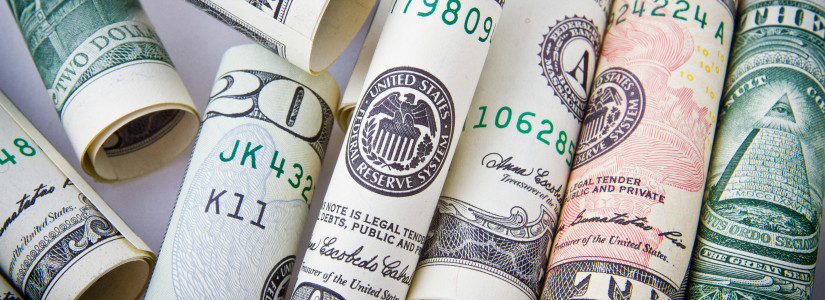Discover How You Could Be Sitting on a Goldmine of Unclaimed Money
Millions of unclaimed money sit in government accounts waiting for the owners. It could belong to you or someone in your family, and it may have been sitting there for years without anyone knowing. These funds can sometimes remain unclaimed for decades before the state returns them to their rightful owners. The money originates from various sources, such as forgotten bank accounts, uncashed checks, utility deposits, and insurance policies.
Each state has a website dedicated to help you search for unclaimed money. All you have to do is search the database using your name or relative's. Depending on the state, you can search nationwide databases as well. However, if you cannot find anything in the state treasury's database, it's time to look elsewhere.
The internet is an excellent resource for finding lost money. Many organizations and private companies offer services to help people find unclaimed money. They usually charge a fee for their services, but it could be worth it if you can recover the money you didn't know existed. On the other hand, you should be wary of companies claiming to help you find the money for free. Most of them ask for a registration fee that may not be refundable.
If you have ever had a bank account, there could be money you don't remember. Contact the bank or any other financial institution to see if they have unclaimed accounts in your or your ancestor's name. If you don't have the account number, they can help you find it through their records. However, you must prove your account ownership by providing proper documentation. You must submit death certificates or other legal documents for the departed kin.
The Social Security Administration (SSA) keeps track of all wages and benefits you have earned in the United States. Request an official copy of the Social Security Statement from SSA to check that all earnings are reported correctly. It's a critical step if you are approaching retirement age, as it allows you to ensure your finances are in order and that you will receive the benefits.
The US Treasury Department also keeps records of unclaimed funds. Explore the website and discover any of your outstanding funds. They also have information on how to claim the money and other important details. If you experience problems maneuvering the web pages, contact their customer service team for help. The beauty is that the US Treasury website is free to use.
Local governments may also have unclaimed money records. Maybe you or your family member owned a home at some point and forgot to cash out the refund check after selling the property. Contacting the local government officials would be a good idea. Another example is if a family member had some money in the city's escrow account and then forgot to collect it. The local government office will help you access that money.
It might sound strange to file a tax return even if you don't have any money, but it can help you find unclaimed funds. If the IRS has any refund due to you, they will send it to your address as long as they have it on file. If you need to know if you have any oncoming refund, contact them for clarification. They may also provide other information about unclaimed or forgotten funds in your name.
If you have exhausted all the other options and still can't find any unclaimed money, then it might be time to contact a lawyer. A lawyer or attorney may have access to critical records and legal resources that could help you uncover any money owed to you. However, this could be costly as lawyers usually charge for their services.
Unclaimed money can be a valuable asset to anyone that finds it. Finding this money may take time and effort, but the reward could be great. With the right resources and dedication, you can discover if unclaimed money awaits you or someone in your family. Begin your exploration now to ensure you take advantage of all possible opportunities.
1. Check With the State Treasury for Unclaimed Money
Each state has a website dedicated to help you search for unclaimed money. All you have to do is search the database using your name or relative's. Depending on the state, you can search nationwide databases as well. However, if you cannot find anything in the state treasury's database, it's time to look elsewhere.
2. Search the Internet for Organizations Offering Unclaimed Money Services
The internet is an excellent resource for finding lost money. Many organizations and private companies offer services to help people find unclaimed money. They usually charge a fee for their services, but it could be worth it if you can recover the money you didn't know existed. On the other hand, you should be wary of companies claiming to help you find the money for free. Most of them ask for a registration fee that may not be refundable.
3. Contact Financial Institutions About Forgotten Accounts
If you have ever had a bank account, there could be money you don't remember. Contact the bank or any other financial institution to see if they have unclaimed accounts in your or your ancestor's name. If you don't have the account number, they can help you find it through their records. However, you must prove your account ownership by providing proper documentation. You must submit death certificates or other legal documents for the departed kin.
4. Request an Official Copy of the Social Security Statement From SSA To Check Reported Earnings
The Social Security Administration (SSA) keeps track of all wages and benefits you have earned in the United States. Request an official copy of the Social Security Statement from SSA to check that all earnings are reported correctly. It's a critical step if you are approaching retirement age, as it allows you to ensure your finances are in order and that you will receive the benefits.
5. Visit the US Treasury Website
The US Treasury Department also keeps records of unclaimed funds. Explore the website and discover any of your outstanding funds. They also have information on how to claim the money and other important details. If you experience problems maneuvering the web pages, contact their customer service team for help. The beauty is that the US Treasury website is free to use.
6. Contact Local Government Offices
Local governments may also have unclaimed money records. Maybe you or your family member owned a home at some point and forgot to cash out the refund check after selling the property. Contacting the local government officials would be a good idea. Another example is if a family member had some money in the city's escrow account and then forgot to collect it. The local government office will help you access that money.
7. File Your Taxes
It might sound strange to file a tax return even if you don't have any money, but it can help you find unclaimed funds. If the IRS has any refund due to you, they will send it to your address as long as they have it on file. If you need to know if you have any oncoming refund, contact them for clarification. They may also provide other information about unclaimed or forgotten funds in your name.
8. Contact a Lawyer
If you have exhausted all the other options and still can't find any unclaimed money, then it might be time to contact a lawyer. A lawyer or attorney may have access to critical records and legal resources that could help you uncover any money owed to you. However, this could be costly as lawyers usually charge for their services.
Unclaimed money can be a valuable asset to anyone that finds it. Finding this money may take time and effort, but the reward could be great. With the right resources and dedication, you can discover if unclaimed money awaits you or someone in your family. Begin your exploration now to ensure you take advantage of all possible opportunities.












